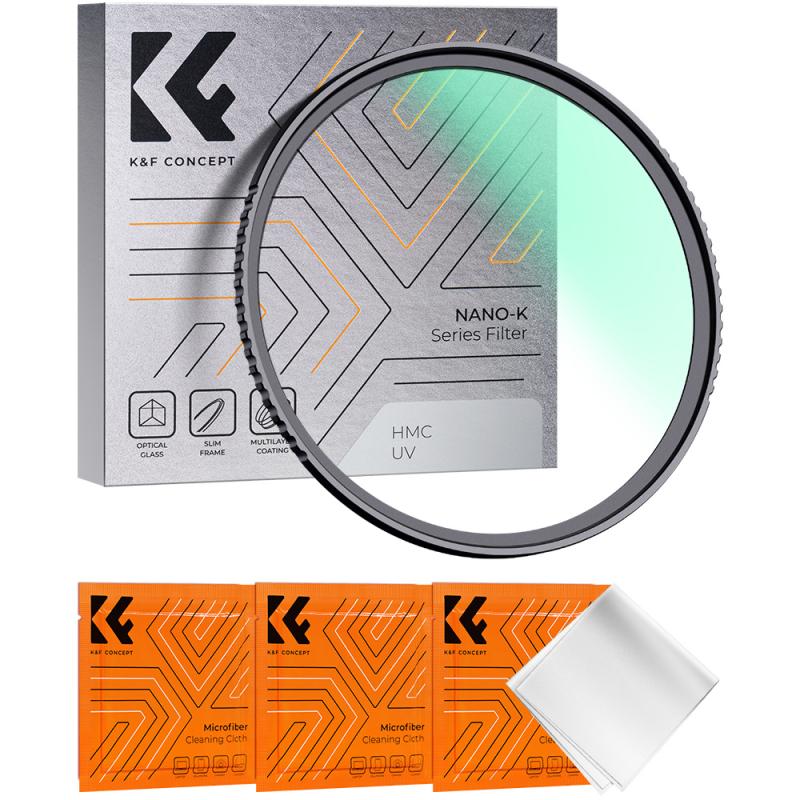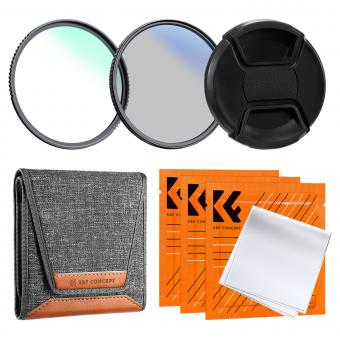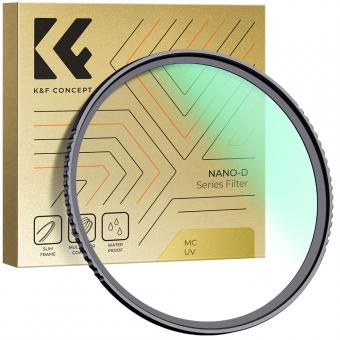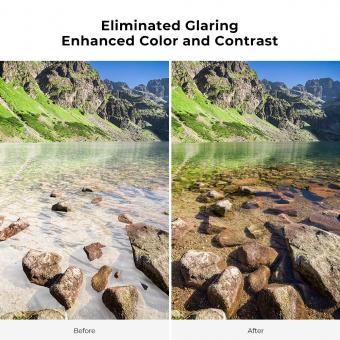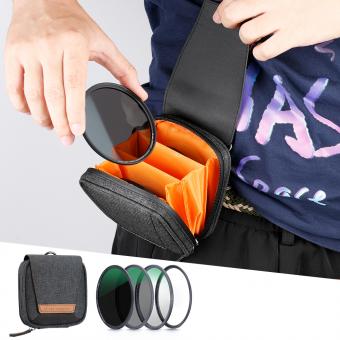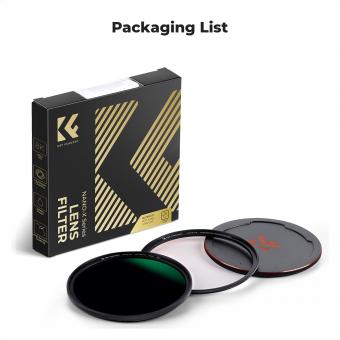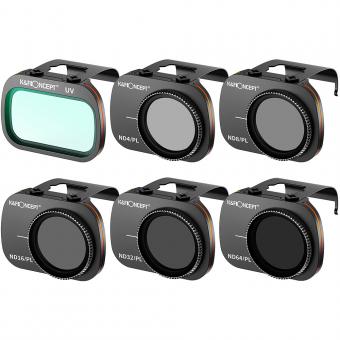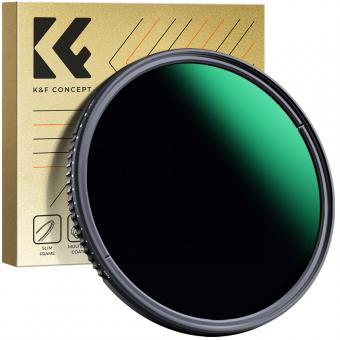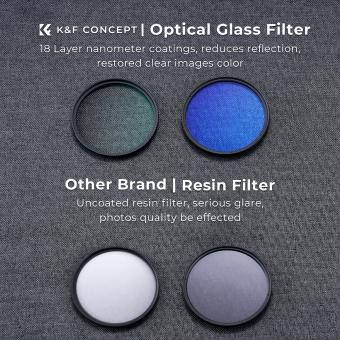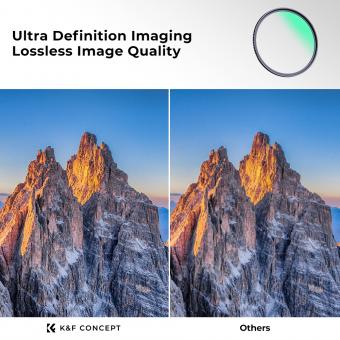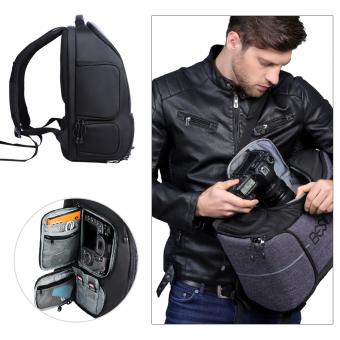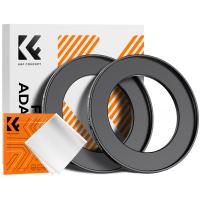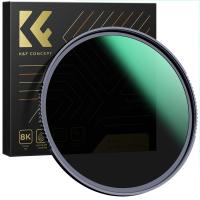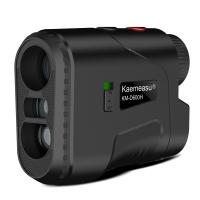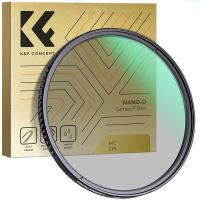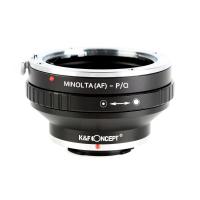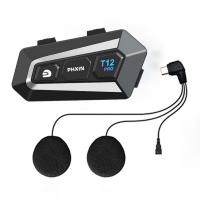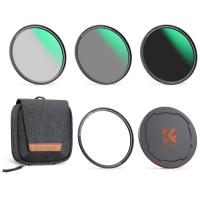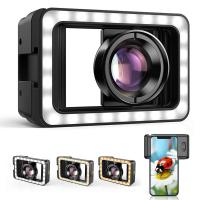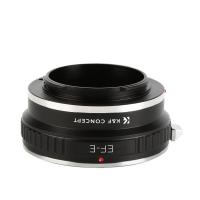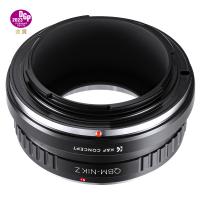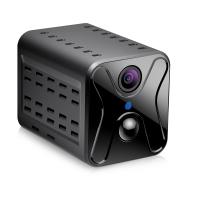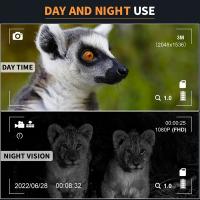What Does Uv Lens Filter Do ?
A UV lens filter is a transparent filter that is placed on the front of a camera lens. It is designed to block ultraviolet (UV) light from entering the lens and reaching the camera's image sensor. UV light can cause hazy and blurry images, as well as a bluish color cast in photographs. By using a UV lens filter, photographers can reduce the impact of UV light and improve the overall clarity and sharpness of their images. Additionally, UV filters can also provide protection to the camera lens by acting as a barrier against dust, moisture, and scratches.
1、 UV lens filters block ultraviolet light to reduce haze.
UV lens filters are transparent filters that are placed on camera lenses to block ultraviolet (UV) light. Their primary function is to reduce haze and improve the overall clarity of photographs. UV light is invisible to the human eye but can cause a bluish cast and reduce the sharpness of images, especially in outdoor settings.
UV lens filters work by absorbing UV light before it reaches the camera sensor. By doing so, they prevent the UV light from interfering with the image quality and help to produce more accurate and vibrant colors. Additionally, these filters can also provide protection for the camera lens itself, acting as a barrier against dust, moisture, and scratches.
In recent years, the necessity of UV lens filters has been a topic of debate among photographers. With advancements in digital camera technology, many argue that modern camera sensors are already equipped with UV filters, making additional UV lens filters redundant. However, there are still some benefits to using UV lens filters, especially in certain situations.
One of the main advantages of UV lens filters is their ability to provide an extra layer of protection for the camera lens. They act as a sacrificial layer, absorbing any potential damage from dust, dirt, or accidental scratches. This can be particularly useful in outdoor photography, where the lens is exposed to elements such as sand, saltwater, or flying debris.
Furthermore, UV lens filters can also be beneficial when shooting in high-altitude or coastal environments, where the concentration of UV light is higher. In such situations, the filters can effectively reduce the haze caused by UV rays, resulting in clearer and more detailed images.
Ultimately, the decision to use a UV lens filter depends on personal preference and shooting conditions. While they may not be essential for every photographer or every situation, they can still offer valuable protection and improve image quality in specific scenarios.

2、 UV filters protect camera lenses from scratches and dust.
UV lens filters are transparent filters that are placed on camera lenses to protect them from scratches, dust, and other potential damage. They are primarily designed to block ultraviolet (UV) light, which can cause hazy and blurry images, especially in outdoor photography.
UV filters work by absorbing or reflecting UV light before it reaches the camera lens. This helps to reduce the amount of UV light that enters the lens and affects the image quality. By doing so, UV filters can improve the clarity and sharpness of photographs, particularly in landscapes and outdoor scenes.
In addition to their protective function, UV filters also offer other benefits. They can act as a barrier against moisture, fingerprints, and smudges, keeping the lens clean and clear. This is especially useful in challenging environments such as sandy beaches or dusty landscapes.
However, it is important to note that the necessity of UV filters has been a topic of debate among photographers. With advancements in lens coatings and digital image processing, the impact of UV light on image quality has become less significant. Some argue that using a UV filter can introduce additional lens flare or reduce contrast in certain situations.
Ultimately, the decision to use a UV filter depends on personal preference and shooting conditions. If you frequently shoot in harsh environments or are concerned about lens protection, a UV filter can be a valuable accessory. However, for photographers who prioritize maximum image quality, it may be worth considering the specific needs of each shooting situation before deciding to use a UV filter.
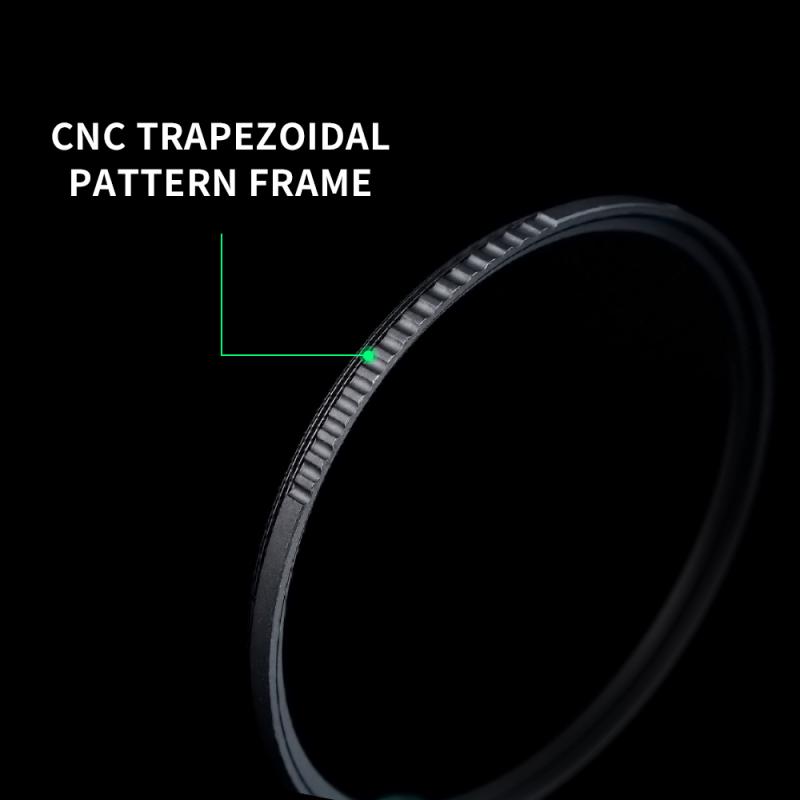
3、 UV lens filters can improve image clarity and sharpness.
UV lens filters are commonly used by photographers to enhance the quality of their images. These filters are designed to block ultraviolet light, which can cause haziness and reduce the overall sharpness of photographs. By using a UV lens filter, photographers can improve image clarity and sharpness, resulting in more vibrant and detailed photos.
UV light is invisible to the human eye, but it can have a significant impact on the quality of photographs, especially in outdoor settings. When shooting in bright sunlight, UV rays can create a bluish cast and reduce the contrast of the image. This can result in a loss of detail and make the photo appear less sharp.
UV lens filters work by absorbing UV light before it reaches the camera's sensor. By blocking these harmful rays, the filter allows only visible light to pass through, resulting in clearer and more vibrant images. Additionally, UV filters can also protect the camera lens from scratches, dust, and moisture.
While some argue that modern digital cameras already have built-in UV filters, there is still a debate among photographers about the effectiveness of these filters. Some believe that using a separate UV lens filter can provide an extra layer of protection and improve image quality, while others argue that it may introduce unwanted reflections or reduce the amount of light entering the lens.
In conclusion, UV lens filters can improve image clarity and sharpness by blocking harmful UV rays. Whether or not to use a UV filter is a personal choice for photographers, and it may depend on the specific camera and shooting conditions. However, for those looking to enhance the quality of their outdoor photographs and protect their camera lens, a UV filter can be a valuable tool.
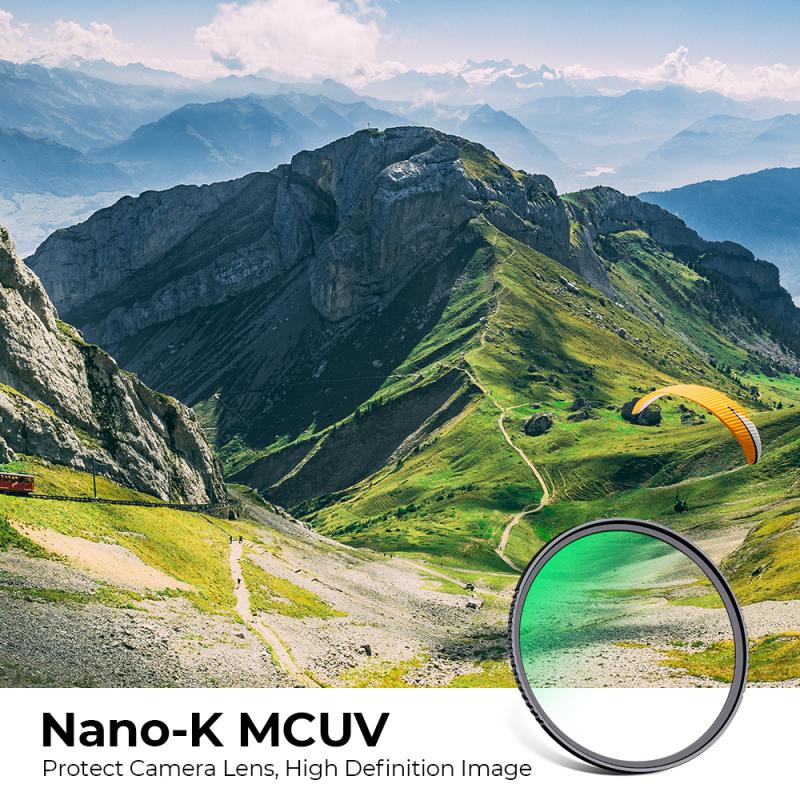
4、 UV filters are commonly used in outdoor photography.
UV filters are commonly used in outdoor photography. These filters are transparent and are designed to block ultraviolet (UV) light from entering the camera lens. UV light is invisible to the human eye but can cause a bluish cast in photographs, especially in high-altitude or coastal areas where the UV light is more intense.
The primary purpose of a UV filter is to reduce the amount of UV light that reaches the camera's image sensor. By doing so, it helps to improve the overall image quality by reducing haze and increasing contrast. UV filters also provide protection for the camera lens by acting as a barrier against dust, moisture, and scratches. This can be particularly useful in harsh outdoor environments.
However, it is important to note that the use of UV filters in digital photography has become a topic of debate in recent years. Some argue that modern digital cameras already have built-in UV filters and that using an additional UV filter can potentially degrade image quality. Others believe that the benefits of using a UV filter, such as lens protection and reducing haze, outweigh any potential drawbacks.
Ultimately, the decision to use a UV filter in outdoor photography is a personal one. It may depend on factors such as the specific camera and lens being used, the shooting conditions, and the photographer's preferences. It is always recommended to test the effects of a UV filter on image quality before making a final decision.
